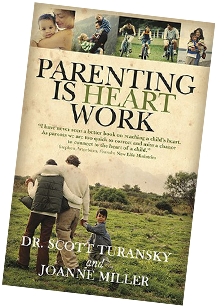Back to series


Recommended Reading:

Is My Child A Follower of Jesus?
Click here to open a Print - Friendly PDF
Christian parents have one ultimate desire for their children—that they place their faith in Jesus Christ as their personal Lord and Savior. However, what does the conversion of a child look like?
In The Chronicles of Narnia book The Voyage of the Dawn Treader, C.S. Lewis illustrates what the true conversion of a child looks like. He begins by describing the preconversion life of a boy. He writes,
There was a boy called Eustace Clarence Scrubb, and he almost deserved it . . . I can’t tell you how his friends spoke to him, for he had none . . .
Eustace Clarence liked animals, especially beetles, if they were dead and pinned to a card . . .
[He] disliked his cousins . . . But he was quite glad when he heard that Edmund and Lucy were coming to stay. For deep down inside him he liked bossing and bullying . . . he knew that there are dozens of ways to give people a bad time if you are in your own home and they are only visitors.1
This is the picture of a child who doesn’t know Jesus.
Later in the story, Eustace falls into a dragon’s cave with horrifying results. Lewis writes,[Eustace] had turned into a dragon while he was asleep. Sleeping on a dragon’s hoard with greedy, dragonish thoughts in his heart, he had become a dragon himself . . .
He realized that he was a monster . . . He began to wonder if he himself had been such a nice person as he had always supposed.2

This is the point at which Eustace becomes aware that he is a sinful person, which of course is the first step in the conversion process. A child must recognize and admit that he or she is a sinner.
Fortunately for Eustace, he soon meets the lion Aslan (the Christ figure in Narnia). Eustace allows Aslan to “un-dragon” him by peeling off his dragon skin. Eustace describes the scene, “The very first tear he made was so deep that I thought it had gone right into my heart,”3 which of course it had. Eustace’s heart has been changed by Aslan, and he is baptized in a pool of water and comes out a changed boy. In other words, the child has repented and confessed his sin, surrendered to Jesus, and the Lord has changed his heart and made him His child.
 Lewis then gives us a realistic description of the post-conversion life of a child. He writes of Eustace,
Lewis then gives us a realistic description of the post-conversion life of a child. He writes of Eustace,
It would be nice, and fairly nearly true, to say that “from that time forth Eustace was a different boy.” To be strictly accurate, he began to be a different boy. He had relapses. There were still many days when he could be very tiresome. But most of those I shall not notice. The cure had begun.4
In other words, while the child wasn’t perfect, there was a marked change in his life now that he had allowed Aslan to “un-dragon” him.
While this illustration can give us an idea about what conversion looks like in a child, how can we know whether or not our child is a Christian?
Fortunately, Jesus gives us some principles to follow in discerning the spiritual state of another person.
First, He warns that we must be careful when judging another person; we must hold ourselves to the same standards of holiness with which we critique others (Matt.7:1–5). In other words, whether we’re trying to discern the conversion of our child or someone else, we must apply the same basic criteria to ourselves.
Second, Jesus says that it is possible to discern the spiritual vitality of other people by the “fruit” they produce in their lives. Those who are rooted in Jesus will produce good and healthy “fruit.” Those who have not experienced the spiritual healing that only Jesus can give will bear “thorns and thistles” (Matt.7:15–20; John 15:4–6). Paul later elaborates on this idea when he says that the follower of Jesus will exhibit the fruit of the Spirit in growing measure: love, joy, peace, patience, kindness, goodness, faithfulness, gentleness, and self-control.
In contrast, the nonbeliever will continue to produce the fruit of the sinful nature: hatred, discord, jealousy, sexual immorality, anger, and lying, to name a few examples (Gal. 5:16–25). In other words, our actions are evidence of whether or not our hearts and mind have been transformed by the work of the Holy Spirit.
This doesn’t mean that Christians will live sinless lives, or that non-Christians will always appear to be bad people. However, there will be a noticeable qualitative difference in the way the Christian lives following true conversion.
Third, Jesus makes it clear that salvation isn’t just intellectual assent, merely confessing that Jesus is Lord. He says that on Judgment Day, many will say, “Lord, Lord,” and Jesus will say, “I never knew you” (Matt. 7:21–23).
Authentic faith in Christ involves a heart that truly believes (Rom. 10:9) and is evidenced by changes in thought, word, and deed. So, while the profession of faith, kneeling by a bedside, or responding to an altar call at church is important, it must be accompanied by a transformation of the heart seen in daily life.
What, then, are some reliable signs that someone has experienced true conversion? The great American preacher and theologian of the early eighteenth century, Jonathan Edwards, who preached in some of the revivals of the First Great Awakening, examined this question.
In his work The Distinguishing Marks of a Work of the Spirit of God, he found in 1 John 4 that the apostle points out five traits of an authentically converted believer. In modern language, such a person:
1. Acknowledges and exalts Jesus as Lord and Savior (1 John 4:2–3)
2. Recognizes the evil of sin in his or her life, the world, and the devil and seeks to overcome it (1 John 4:4–5)
3. Has a growing understanding and love for God’s Word (1 John 4:6)
4. Seeks for and discerns the truth in all things (1 John 4:6)
5. Loves God and others (1 John 4:8)
These five marks of true conversion will be present in the life of every true believer, although the marks may evidence themselves somewhat differently in the life of a child compared to an adult. (Immaturity and stages of development must be taken into account.) So how do these translate into the life of your son or daughter? Here are some questions to consider:
 1. Is there a genuine affection and love for Jesus in your child’s life, or is your child just parroting your religious language? In other words, is your child in love with Jesus as evidenced by an infectious enthusiasm for the Lord?
1. Is there a genuine affection and love for Jesus in your child’s life, or is your child just parroting your religious language? In other words, is your child in love with Jesus as evidenced by an infectious enthusiasm for the Lord?
Does your child enjoy talking about Jesus and demonstrate sincerity in the worship of Jesus as seen in prayers and corporate worship?
2. Is your child truly sorry when he or she does something sinful or harms someone else? Does he or she get upset when bad things happen to others and have a desire to do something about it?
Is your child’s conscience working in a way that leads to repentance—a change in actions and desire to live like Jesus?
3. Does your child enjoy reading Bible stories, and is he or she growing in the understanding of Scripture? Does your child seem interested in knowing more about God, and does he or she ask appropriate questions?
4. Is your child growing in wisdom, and is he or she better able to discern good from evil as evidenced by what he or she enjoys doing and choosing?
For instance, does a child turn away from media choices that are offensive, recognize and make comments about the bad behavior of adults or peers, stand up for a friend being bullied, and confront or walk away from negative peer pressure?
5. Is your child growing in kindness toward friends and siblings and demonstrating greater obedience toward you as a parent? Is your child respectful toward adults? Does your child play well together with other children—doing kind and thoughtful things for others without being asked?
While the discernment of true conversion isn’t an exact science, since only God knows the true state of the human heart, I trust these questions can help you recognize the presence of God’s grace in your child. Always keep praying for your child and know that God hears your prayer.
Notes
1. C.S. Lewis, The Voyage of the Dawn Treader (1952: repr., New York: HarperCollins, 1994), 3–4.
2. Ibid., 91–92.
3. Ibid., 109.
4. Ibid., 112.

Joel Woodruff
President, C.S. Lewis InstituteJoel Woodruff, President, C.S. Lewis Institute, has worked in higher education, “tent-making,” nonprofit administration, and pastoral ministries in Alaska, Israel, Hungary, France, and Northern Virginia. He served as Dean of Students, Chaplain, and Professor of Bible & Theology at European Bible Institute, where he helped train Europeans both for professional ministry and to be Christian leaders in the marketplace. Prior to joining the Institute, he was on the leadership team of Oakwood Services International, a nonprofit educational and humanitarian organization. He is a graduate of Wheaton College, earned his M.Div. from Gordon-Conwell Theological Seminary, and has a doctorate in Organizational Leadership from Nova Southeastern University. As a Parish-Pulpit Fellow, he studied Biblical Backgrounds & Archaeology in Israel for a year.

Recommended Reading:
Dr. Scott Turansky and Joanne Miller, Parenting is Heart Work
If you’re like most parents, you have developed your own parenting strategy—sometimes it seems to work, and other times—based on the way your child behaves—you wonder if it’s working at all. There are countless ways to try to get a child’s attention and to effect change—but here’s the truth—unless you deal with a child through his or her heart, you are not likely to see lasting change.
 COPYRIGHT: This publication is published by C.S. Lewis Institute; 8001 Braddock Road, Suite 301; Springfield, VA 22151. Portions of the publication may be reproduced for noncommercial, local church or ministry use without prior permission. Electronic copies of the PDF files may be duplicated and transmitted via e-mail for personal and church use. Articles may not be modified without prior written permission of the Institute. For questions, contact the Institute: 703.914.5602 or email us.
COPYRIGHT: This publication is published by C.S. Lewis Institute; 8001 Braddock Road, Suite 301; Springfield, VA 22151. Portions of the publication may be reproduced for noncommercial, local church or ministry use without prior permission. Electronic copies of the PDF files may be duplicated and transmitted via e-mail for personal and church use. Articles may not be modified without prior written permission of the Institute. For questions, contact the Institute: 703.914.5602 or email us.
-
Recent Podcasts
A Welcome Change in Apologetics
by Randy Newman, Aimee Riegert on April 19, 2024We’re burdened for our friends who don’t know...Read More
-
Questions That Matter Podcast – Samuel James and Digital Liturgies
by Samuel James, Randy Newman on April 19, 2024
-
The Side B Stories – Dr. James Tour’s story
by Jana Harmon, James Tour on April 12, 2024
-
Recent Publications
Isn’t Morality Relative?
by Christopher L. Reese on April 1, 2024It is widely accepted in the Western world...Read More
-
Do Muslims and Christians Worship the Same God?
by Andy Bannister on March 1, 2024
-
Artificial Intelligence and Its Impacts on Humanity
by John Lennox on February 13, 2024
0
All Booked
0.00
All Booked
0.00
All Booked
22140
GLOBAL EVENT: Keeping the Faith From One Generation To Another with Stuart McAllister and Cameron McAllister, 8:00PM ET
https://www.cslewisinstitute.org/?event=global-event-keeping-the-faith-from-one-generation-to-another-with-stuart-mcallister-and-cameron-mcallister-800pm-et&event_date=2024-05-17®=1
https://www.paypal.com/cgi-bin/webscr
2024-05-17

Next coming event
Days
Hours
Minutes
Seconds
GLOBAL EVENT: Keeping the Faith From One Generation To Another with Stuart McAllister and Cameron McAllister, 8:00PM ET
On May 17, 2024 at 8:00 pmSpeakers

Joel Woodruff
President, C.S. Lewis Institute
Team Members

Joel Woodruff
President, C.S. Lewis InstituteJoel Woodruff, President, C.S. Lewis Institute, has worked in higher education, “tent-making,” nonprofit administration, and pastoral ministries in Alaska, Israel, Hungary, France, and Northern Virginia. He served as Dean of Students, Chaplain, and Professor of Bible & Theology at European Bible Institute, where he helped train Europeans both for professional ministry and to be Christian leaders in the marketplace. Prior to joining the Institute, he was on the leadership team of Oakwood Services International, a nonprofit educational and humanitarian organization. He is a graduate of Wheaton College, earned his M.Div. from Gordon-Conwell Theological Seminary, and has a doctorate in Organizational Leadership from Nova Southeastern University. As a Parish-Pulpit Fellow, he studied Biblical Backgrounds & Archaeology in Israel for a year.






